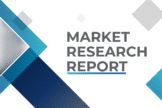
Global Tyrosine Kinase Inhibitors Market Covid-19 Impact Analysis, Drivers, Restraints, Opportunities, Threats, Trends, Applications, and Growth Forecast to 2031
-
22456
-
May 2023
-
176
-
-
This report was compiled by Correspondence Linkedin | Detailed Market research Methodology Our methodology involves a mix of primary research, including interviews with leading mental health experts, and secondary research from reputable medical journals and databases. View Detailed Methodology Page
-
Tyrosine Kinase Inhibitors Market Overview:
The Tyrosine Kinase Inhibitors market report extensively covers market segmentation by product, by application, by route of administration, and by geography (APAC, North America, Europe, South America, and MEA) and potential Tyrosine Kinase Inhibitors market drivers that the vendors are capitalizing on to sustain profitable growth.
Furthermore, read about the latest key findings on the post-COVID-19 impact on the Tyrosine Kinase Inhibitors market from this report.
“The Tyrosine Kinase Inhibitors market size is expected to be worth around US$ 18,050.50 million by 2031 from US$ 18,014.40 million in 2021, growing at a CAGR of 0.01% during the forecast period 2021 to 2031.”
It is complete with important statistics and other industry-relevant particulars, including factors expected to influence Tyrosine Kinase Inhibitors market progress, drivers, restraints, opportunities, trends, sales reviews, landmark developments (existing and anticipated), SWOT analysis, as well as information on other potential revenue generation prospects in unexplored areas of operation.
The data collated by our analysts from both primary and secondary sources are validated by data management solutions, and more importantly, industry experts, to ensure genuine authenticity.
The global Tyrosine Kinase Inhibitors market report will encompass imminent threats or challenges from existing industry contenders, as well as potential new market entrants. Additionally, this dossier will also explore existing as well as foreseeable impacts of the ongoing COVID-19 pandemic.
Impacts of the COVID-19 Pandemic:
Most industries across the world have been negatively impacted over the last few months.
This can be attributed to significant disruptions experienced by their respective manufacturing and supply-chain operations as a result of various precautionary lockdowns, as well as other restrictions that were enforced by governing authorities across the globe.
The same applies to the global Tyrosine Kinase Inhibitors market.
Moreover, consumer demand has also subsequently reduced as individuals are now more keen on eliminating non-essential expenses from their respective budgets as the general economic status of most individuals has been severely affected by this outbreak.
These aforementioned elements are expected to burden the revenue trajectory of the global Tyrosine Kinase Inhibitors market over the forecast timeline.
However, as respective governing authorities begin to lift these enforced lockdowns, the global Tyrosine Kinase Inhibitors market is expected to recover accordingly.
Who are the Major Tyrosine Kinase Inhibitors Market's Key Players?
Key industry players profiled in this global Tyrosine Kinase Inhibitors market include:
AstraZeneca Plc, Pfizer, Inc., Novartis AG, Bristol-Myers Squibb Company, Bayer AG, Boehringer Ingelheim International GmbH, F. Hoffmann-La Roche Ltd., Johnson & Johnson, Eisai Co., Ltd., and Eurofarma Laboratórios S/A
Segmentation of the Global Tyrosine Kinase Inhibitors Market:
By Product
- Non-receptor Tyrosine Kinase Inhibitors
- Bruton’s Tyrosine Kinase (BTK) Inhibitors
- BCR-ABL
- Janus Kinase (JAK) Inhibitor
- Mesenchymal Epithelial Transition Growth Factor (c-MET)
- Spleen Tyrosine Kinase (SYK) Inhibitors
- Others
- Receptor Tyrosine Kinase Inhibitors
- VEGFR
- PDGFR
- EGFR
- ALK
- HER2
- Others
- Multikinase inhibitors
- Serine/Threonine Kinase Inhibitors
- Protein Kinase C Inhibitors
- RHO Kinase Inhibitors
- Others
By Application
- Oncology
- Lung Cancer
- Renal Cell Cancer
- Breast Cancer
- Others
- Inflammatory Diseases
- Others
By Distribution Channel
- Hospital Pharmacies
- Independent Pharmacies
- Online Pharmacies
By Geography
- North America
- Asia Pacific
- Latin America
- Middle East & Africa
What are the Key Factors Covered in this Tyrosine Kinase Inhibitors Market Report?
- CAGR of the Tyrosine Kinase Inhibitors market during the forecast period 2021-2031.
- Precise estimation of the Tyrosine Kinase Inhibitors market size and its contribution to the parent market.
- Detailed information on factors that will drive Tyrosine Kinase Inhibitors market growth during the next ten years.
- Accurate predictions on upcoming trends and changes in consumer behavior.
- The growth of the Tyrosine Kinase Inhibitors market across APAC, North America, Europe, South America, and MEA.
- A thorough analysis of the Tyrosine Kinase Inhibitors market’s competitive landscape and detailed information on key Players.
- Comprehensive details of factors that will challenge the growth of Tyrosine Kinase Inhibitors market vendors.
- Tyrosine Kinase Inhibitors Market’s Opportunity Orbits
- Market Investment Feasibility Index
- PEST Analysis
- PORTER’S Five Force Analysis
- Drivers & Restraints Impact Analysis
- Marketing Strategy
- Product Life Cycle Analysis
- Value Chain Analysis
- Cost Structure Analysis
- Macro-economic Factors
[table_custom cagr=0.01% market_size=18,014.40Mn USD projection=18,050.50Mn USD]
- Non-receptor Tyrosine Kinase Inhibitors
-
-
- AstraZeneca Plc
- Pfizer, Inc.
- Novartis AG
- Bristol-Myers Squibb Company
- Bayer AG
- Boehringer Ingelheim International GmbH
- F. Hoffmann-La Roche Ltd.
- Johnson & Johnson
- Eisai Co.ltd.
- Eurofarma Laborat?rios S/A




